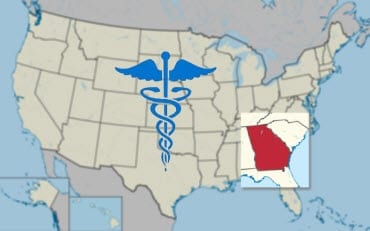State’s insurance rates remain steady despite fears of major increases
The cost of coverage from Georgia’s health insurance exchange have remained steady, according to a study from the Urban Institute. Many had feared that premiums for policies sold through the state’s exchange would increase at a rapid pace, but this has not been the case. The exchange sells plans in Bronze, Silver, Gold, and Platinum categories, with each tier offering their own level of coverage benefits, with Platinum being considered the most comprehensive. Silver tier plans are, by far, the most popular in Georgia.
According to the study from the Urban Institute, the average premium increase for Silver plans nationwide was 2.9%. In Georgia specifically, the average premium for this tier of coverage rose by 1.8% this year. The average monthly premium for this coverage is now $260 in the state. In rural areas of the state, health insurance premiums actually decreased, falling from a monthly premium of $303 to $289. Competition may have something to do with the relatively small increase in premiums that the state has seen this year.
 In 2014, there was only one company offering coverage through the state’s health insurance exchange: Blue Cross and Blue Shield of Georgia. This year, however, there are four companies offering coverage through the exchange. Nationwide, exchanges first began operating in 2014, with enrollment in these exchanges opening in late 2013. Many insurers were wary of exchanges because they did not know if these marketplaces would be viable. Last year, health insurance exchanges proved to be quite popular, which encouraged more participation from various insurance companies.
In 2014, there was only one company offering coverage through the state’s health insurance exchange: Blue Cross and Blue Shield of Georgia. This year, however, there are four companies offering coverage through the exchange. Nationwide, exchanges first began operating in 2014, with enrollment in these exchanges opening in late 2013. Many insurers were wary of exchanges because they did not know if these marketplaces would be viable. Last year, health insurance exchanges proved to be quite popular, which encouraged more participation from various insurance companies.
More competition will help keep the state’s insurance exchange healthy
Competition is helping keep health insurance costs in check. Through the state’s insurance exchange, consumers can find inexpensive coverage that provides them with the benefits that they need. If this coverage becomes too expensive in the future, consumers can find other policies through the exchange, giving companies an incentive to keep their policies affordable.

